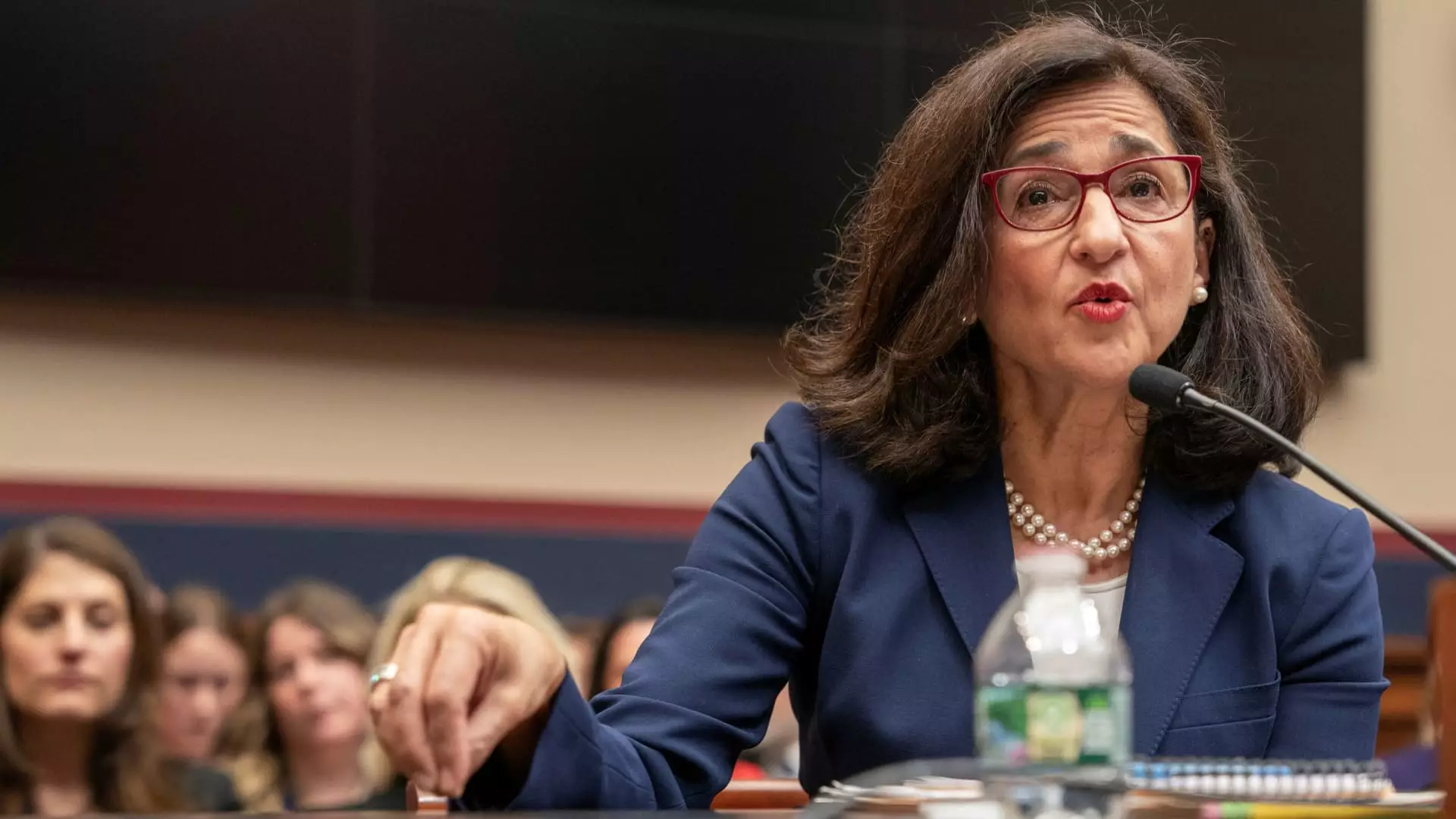The recent resignation of Nemat “Minouche” Shafik, the president of Columbia University, has sparked debates and discussions on campus. Shafik stepped down from her position after facing months of criticism and protests over the war in Gaza. This decision came after only a little more than a year into her role, leaving many questioning the reasons behind her departure.
One of the main points of contention during Shafik’s tenure was her response to the anti-war protests on the Manhattan campus. She faced criticism from both anti-war protesters and House Republicans in Congress, showcasing the divergent views present within the Columbia community. Shafik’s decision to involve the New York City Police Department to clear encampments set up by protesters further fueled the controversy.
Challenges Faced by Shafik
In her resignation letter, Shafik acknowledged the period of turmoil during her presidency and the toll it took on her family and the community. She highlighted the progress made in various areas but also recognized the difficulties in overcoming the differing opinions within the university. This acknowledgment sheds light on the challenges faced by leaders in navigating complex situations.
Following Shafik’s resignation, Katrina Armstrong was named as the interim president of Columbia University. Armstrong, the CEO of the Columbia University Irving Medical Center, expressed optimism and determination in leading the institution forward. The transition in leadership marks a new chapter for the university and an opportunity to renew its vision and strengthen the community.
Student protest groups, such as Columbia Students for Justice in Palestine, played a significant role in calling for Shafik’s resignation. The demonstrations and calls for divestment from financial support of Israel created a challenging environment on campus. The resignation of Shafik showcases the power of student activism and the importance of listening to the demands and concerns of the student body.
Reflection on Core Values
In her letter, Shafik emphasized the core values of Columbia University, including free speech, openness to new ideas, and zero tolerance for discrimination. Despite the disruptions and divisions on campus, she reaffirmed the institution’s commitment to upholding academic principles and treating everyone with fairness and compassion. This reflection underscores the importance of staying true to one’s values in times of adversity.
The resignations of other university presidents, such as Liz Magill of the University of Pennsylvania and Claudine Gay of Harvard University, further highlight the challenges faced by academic leaders. The increasing politicization of campus issues and the scrutiny from lawmakers pose significant obstacles for university presidents in fulfilling their roles effectively. This trend calls for a deeper examination of the intersection between academia and politics.
The resignation of Minouche Shafik as the president of Columbia University marks a significant moment in the institution’s history. It prompts discussions on leadership, activism, and the role of universities in addressing complex societal issues. As Columbia University navigates the challenges ahead under new leadership, there is an opportunity for reflection, growth, and renewed commitment to the values that define the institution.

Leave a Reply